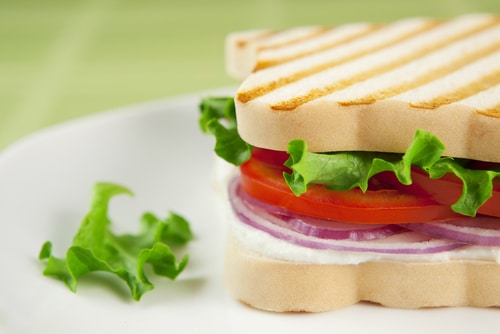
Find Out Whether You’re Gluten-Sensitive
If you truly are sensitive to gluten or you have celiac disease, it’s essential that you eat a gluten-free diet. Even tiny amounts of gluten, the amount in a bite of wheat bread, can trigger intestinal inflammation in some people with this condition. Plus, not controlling inflammation through a gluten-free diet increases the risk of intestinal cancer. If you have celiac disease you want to know and take steps to control it by completely eliminating gluten from your diet. There are blood tests available to check for celiac disease, but these tests aren’t always accurate and may be negative even if you have celiac disease.
If you have intestinal symptoms like bloating, gas, diarrhea and abdominal cramping or you suffer from fatigue or other symptoms, get tested. But even if the tests are negative, you should still do your own “self-test” by trying a gluten- free diet. To do this, completely eliminate gluten from your diet for two weeks and see if your symptoms improve. If they do, keep gluten out of your diet because you very well may have some degree of gluten-sensitivity despite normal blood tests.
Going Gluten Free When You’re Not Sensitive
Some experts will tell you everyone should eliminate gluten from their diet, regardless of whether they’re sensitive or not. Going gluten-free is a big commitment since gluten is thickener and stabilizer in many food products, including ones you don’t suspect. It’s not as easy as simply eliminating wheat, rye, barley and oats that could be contaminated with gluten. To completely avoid gluten, you have to scrutinize every product you buy including condiments, marinades, dairy substitutes, deli meats, gravies, salad dressings, soup mixes, soy sauce, and even beauty products. All of these can be a hidden source of gluten.
Going gluten-free takes effort. It means reading scrutinizing every label and knowing what terms can indicate hidden sources of gluten. When you see words like emulsifier, malt, modified food starch, artificial color or natural flavors on labels, it means the product could contain gluten. As you can see, it requires a lot of work to go gluten-free. Plus, it’s challenging eating at a restaurant when you’re avoiding gluten.
There’s also the issue of cost. According to a study published in the Canadian Journal of Practice Resources, gluten-free products at supermarkets are a whopping 242% more expensive than similar foods that aren’t free of gluten. If you’re gluten-sensitive, you don’t have a choice, but if you’re going gluten-free to follow the trend, it may not be worth the additional cost. There’s not a lot of evidence that eating a gluten-free diet will help you slim down. It’s true that avoiding gluten forces you to give up many refined carbs that contribute to weight gain, but it’s not beneficial if you replace them with packaged products that are labeled gluten-free. On the other hand, if you eliminate refined carbs to go gluten-free and replace them with more whole foods like fruits and vegetables, you’ll reap some health benefits.
A Gluten-Free Diet May Keep You from Getting Adequate Fiber
Adults need between 20 and 35 grams of dietary fiber a day, and most people don’t get that amount even when they eat a diet containing gluten. When you’re gluten-sensitive, you have to completely eliminate many whole grains from your diet and that means less fiber. Unless you really increase the amount of fiber-rich fruits and vegetables you eat, you’re probably going to end up not meeting your daily fiber requirements on a gluten-free diet.
The Bottom Line?
If you truly are gluten-sensitive or you find you feel better after two weeks of being gluten-free, a gluten-free diet may work well for you, but don’t do it just to be part of the latest diet trend. Instead, eat more fruits and vegetables and fewer processed foods. You’ll get health benefits without the time and expense of going completely gluten-free.
References:
Can J Diet Res Pract. 2008 Fall;69(3):147-50.
J Hum Nutr Diet 2005;18:163-9.
Related Articles By Cathe:
Can Going Gluten Free Make You a Better Athlete?
Is Gluten Intolerance and Wheat Allergy the Same Thing?
Gluten Sensitivity: Are You Sensitive to Gluten or FODMAPs?
How to Eat Healthy on a Gluten-Free Diet
Is There a Test for Gluten-Sensitivity?

